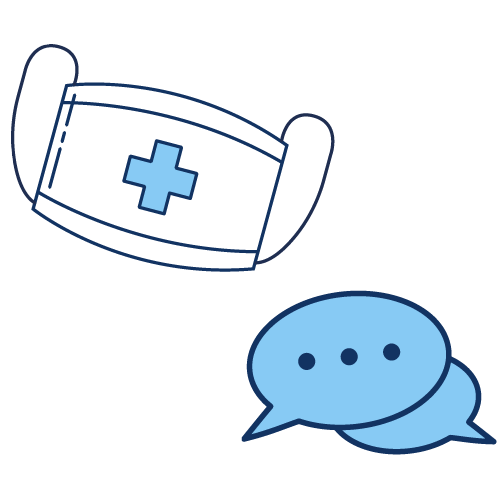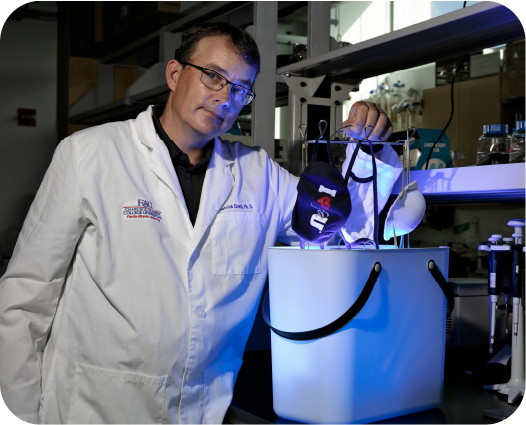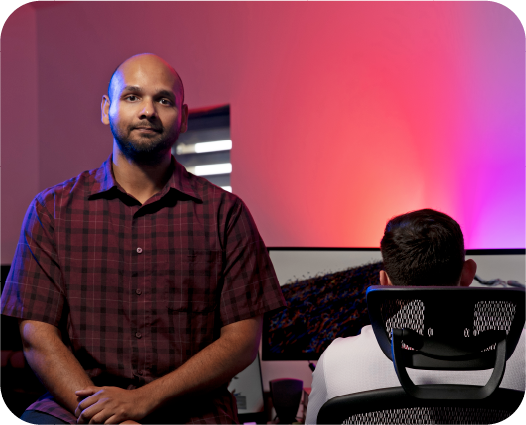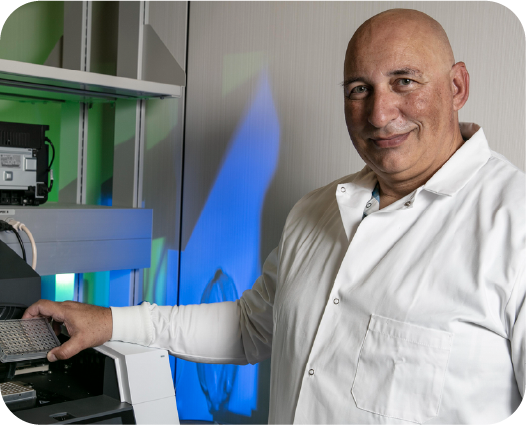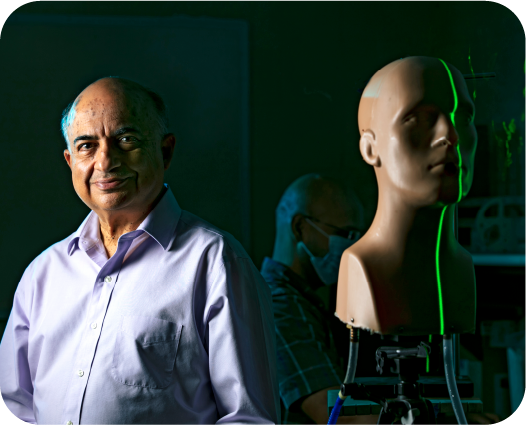Patrick Grant, Ph.D., associate professor of biomedical science, Charles E. Schmidt College of Medicine, recently designed a new compact and portable sanitizing device for multiple masks that can be used anywhere, on multiple masks simultaneously, keys and smartphones. The device uses ultraviolet light to quickly kill bacteria, yeasts, mold spores and viruses.
Grant’s “portable hanging rack device” comprises an enclosed chamber housed in either a plastic container or steel compartment. Up to six masks can be positioned vertically on an internal rack. The UV light source is shielded within the housing to prevent harm to the user as its radiation deactivates the biological components of the pathogens covering the masks.



